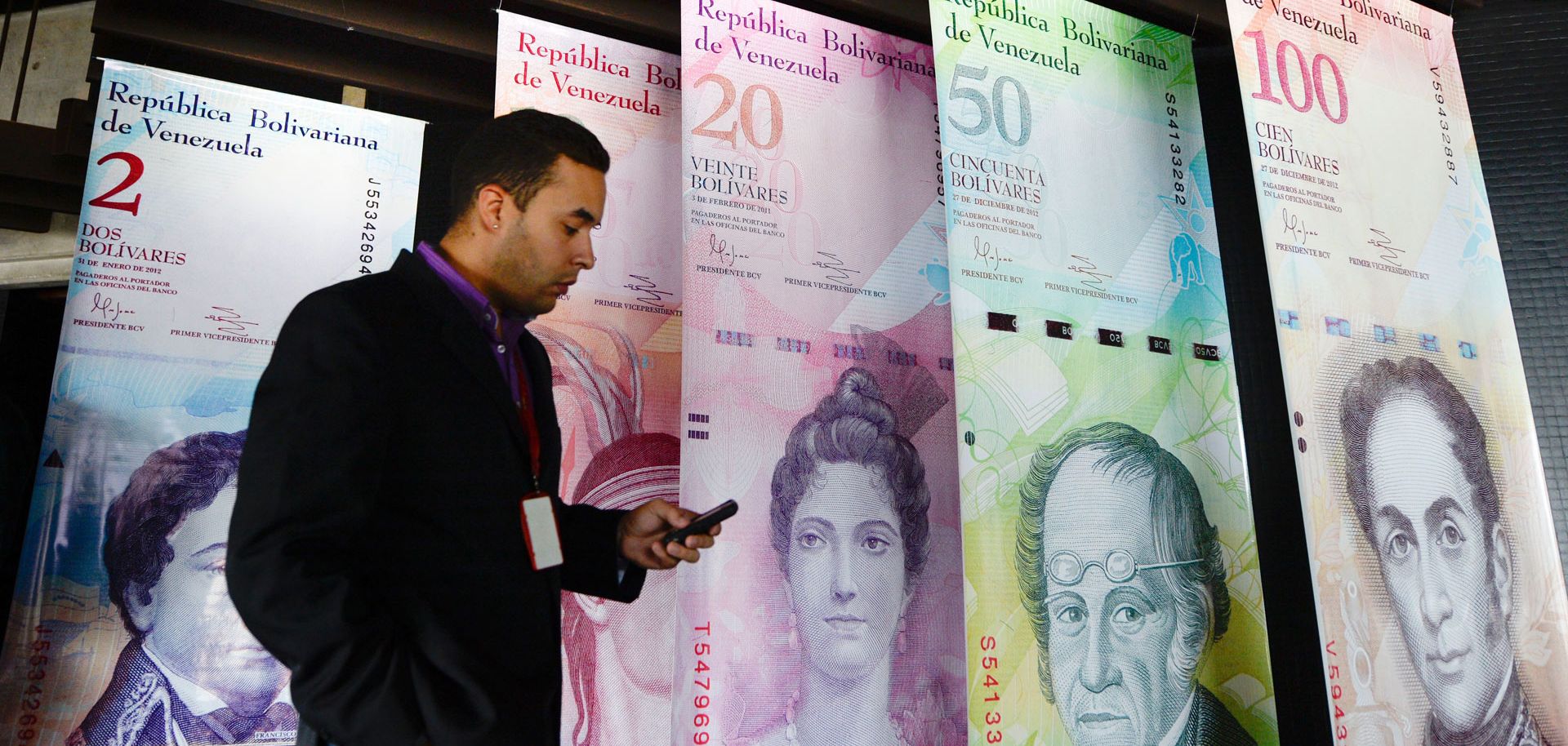ASSESSMENTS
A Risky Exchange in Venezuela
Dec 13, 2016 | 09:00 GMT

(FEDERICO PARRA/AFP/Getty Images)
Summary
The most common denomination of Venezuela's currency — the 100-bolivar banknote — soon will not be worth the paper it is printed on. President Nicolas Maduro has announced that the country will phase out the note, its highest denomination, and introduce a 500-bolivar note as the country's new lowest-denomination bill. Other bills with values up to 20,000 bolivars will be introduced later this month. The decision to eliminate the 100-bolivar banknote, which in November accounted for almost 80 percent of the bills in circulation, makes sense given Venezuela’s rampant inflation and the fact that high-denomination bills make up a growing share of the currency used in the country. But the real risk the switch creates for the Venezuelan government lies in the way that it will be administered.
Subscribe Now
SubscribeAlready have an account?
